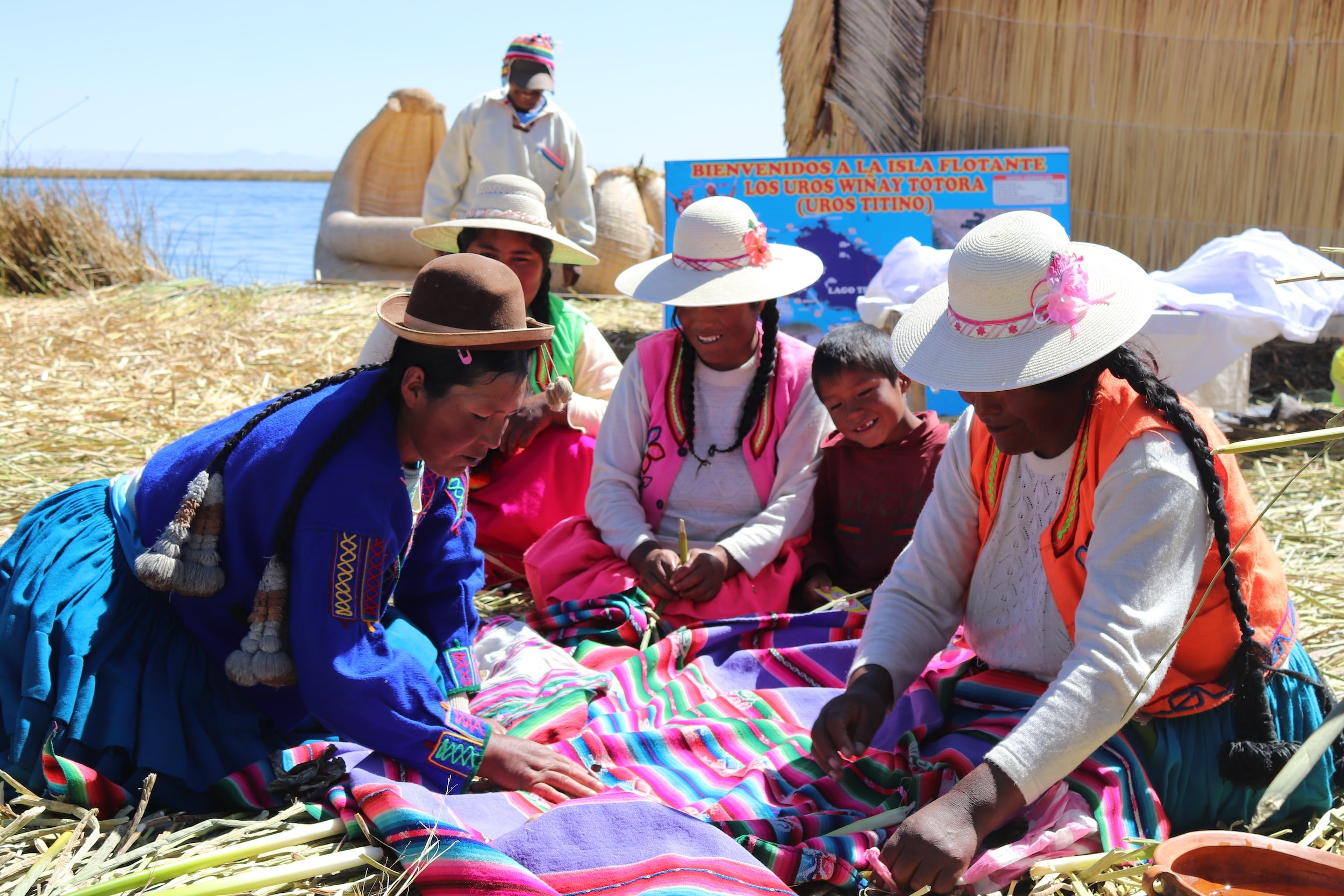Ethics and Consent in Research with Vulnerable Participants
SAGE Methodspace is focusing on research ethics in August 2022. One of the topics of most concern for ethics reviewers is the inclusion of vulnerable participants.
How do we define vulnerable participants? As is common with many research-related terms, there is not a simple answer!
In the SAGE Encyclopedia of Communication Research Methods, Brule and Eckstein (2017) discuss how to describe this group:
Vulnerable groups involve human samples considered particularly susceptible to coercion or undue influence in a research setting. A vulnerable group includes persons who may be incapable of understanding what it means to participate in research and/or who may not understand what constitutes informed consent. Individuals considered vulnerable may, for various reasons, have a diminished capacity to anticipate, cope with, resist, and/or recover from the impact of a natural or man-made hazard. Vulnerable groups may also consist of individuals who are unable to care for themselves and/or may have an increased chance of suicide, self-harm, or the likelihood of harming others. (p. 1870)
How do researchers determine whether the people they want to study merit the extra attention and protection as vulnerable participants? Brule and Eckstein (2017) observe:
Researchers’ assignment of vulnerable group status is both dynamic and relative, because the nature of those groupings is culturally dependent and those labeled as vulnerable are perceived as being in danger, at risk, under threat, susceptible to problems, helpless, and/or in need of protection or support. A situation that makes one person vulnerable may not make another person vulnerable. (p. 1870)
Aldridge (2022) makes a similar point:
[V]ulnerability remains a mutable and even contestable concept. This is especially the case when considering the various definitions and classifications adopted in research governance and ethical frameworks, in health and social care discourses, and with respect to the self-perceptions of those people defined as “vulnerable.” (p. 2)
However you (or your institution) define vulnerability and assign participants to such groups, attention to be the ethical protocols and methods will be essential. Aldridge (2022) suggests that flexible methods, designed with the needs of vulnerable participants in mind, are best. She urges researchers to reflect on power dynamics and concepts of equality in researcher–participant relationships. In terms of protocols, it is possible that your usual ways of approaching informed consent must be revised.
The multidisciplinary collection of open-access articles listed below offer examples of studies with vulnerable participants that you can mine for ideas to adapt for your own research.
Cook, T., & Inglis, P. (2009). Making our Own Decisions: Researching the Process of ‘Being Informed’ with People with Learning Difficulties. Research Ethics, 5(2), 55–64. https://doi.org/10.1177/174701610900500204
Abstract. Historically people with learning difficulties1 have been either included in research without their consent or excluded from research that affects their treatment and care. Over the last 20 years, however, it has been recognised that to exclude the voice of people with learning difficulties (and other so called vulnerable groups) in research that reflects their lived experiences challenges our notion of ethical practice. Cognitive ability has traditionally been one of the key factors in determining ability to consent. This paper identifies, through work with a group of men with learning difficulties, the impact of different ways of presenting information to prospective participants on their ability to understand key issues in relation to participation in research and hence their ability to give informed consent2.
Dewing, J. (2008). Process Consent and Research with Older Persons Living with Dementia. Research Ethics, 4(2), 59–64. https://doi.org/10.1177/174701610800400205
Abstract. There is always a debate around consent in the context of research. Given the expansion of different approaches to qualitative research within dementia care, there is increasing consideration around consent in this context; particularly in research concerning the experiences of living with dementia and the care of persons with dementia. Specifically there is a drive to directly involve persons with dementia as they offer specific expertise concerning living with dementia. Additionally, capacity legislation strengthens the case for ensuring that persons with dementia are actively enabled to make their own decisions for as long as possible. This paper discusses an approach and method that can enable more persons who are living with dementia to participate in some types of research should they want to. Currently, most researchers rely on an extension of the traditional competency-based informed consent method and/or proxy consent or assent. However, related to the development of so-called person-centred and participatory research in dementia, there are now a number of academic publications on approaches and practical methods of ‘inclusionary’ consent. This paper considers the broader contextual influences on inclusionary consent and outlines the key aspects of such approaches based on the development of one specific method for including persons with dementia in consent processes. The method is based on the premise that, for persons with a dementia, informed consent becomes increasingly redundant and consequently exclusionary to them as persons. And even where capacity is said to no longer exist, persons with dementia are often able to make choices and make known their preferences about participating in research where the consent process is made specifically dementia-sensitive. Ethics committees can facilitate researchers both by supporting them when they need to and want to include persons with dementia in gerontological research and by challenging them to ensure that participation is genuine and starts with process consent.
Forster, D. G., & Borasky, D. A. (2018). Adults Lacking Capacity to Give Consent: When Is It Acceptable to Include Them in Research? Therapeutic Innovation & Regulatory Science, 52(3), 275–279. https://doi.org/10.1177/2168479018770658
Abstract. The regulatory framework that governs research involving human subjects in the United States was developed based on the ethical principles described in the Belmont Report. The principle of respect for persons demands that research consider an individual’s right to determine whether or not to participate in research. In the regulations, respect for persons is manifested in the informed consent requirements. However, the regulations do not provide clear direction for institutional review boards (IRBs) when presented with research that involves adult subjects who lack the capacity to give their informed consent. The regulations merely require that researchers obtain the legally effective informed consent of the subject or the subject’s legally authorized representative. To assist IRBs with their assessment of such research, we propose a framework for assessing the appropriateness of inclusion of such subjects through the application of a framework that takes into account the level of risk presented by the proposed research as well as the expected benefits that individual subjects are likely to accrue through their participation in the research. This framework takes into account the principle of respect for persons as well as the principles of beneficence and justice.
Hugonot-Diener, L., & Husson, J.-M. (2007). Communicating with the Elderly: Decision Making and Informed Consent in Subjects with Frailty or Dementia. Research Ethics, 3(3), 92–96. https://doi.org/10.1177/174701610700300309
Abstract. Obtaining a valid informed consent from an elderly person, especially when frail or with possible dementia, will initially involve the practical problem of assessing the ability to communicate. Only then can the assessment of decisionmaking capacities and the obtaining of informed consent for participation in research be progressed. Normal ageing does not impair communication or decision-making, but pathological status does, this may, or may not, be associated with the ageing process. Perceptual impairment may, in particular, interfere with the communication.
Once the subject appreciates and understands that he/she has the right to make a choice then it is important to ensure that he/she fully understands the decision he/she is being asked to make and can communicate and explain in his/her own words why a particular decision was made.
In this paper suggestions, based upon existing guidelines or texts, will be made as to how to improve communication with the elderly and the capabilities that the subject must demonstrate to show his capacity to make a decision will be discussed.
Humpage, L., Fozdar, F., Marlowe, J., & Hartley, L. (2019). Photovoice and refugee research: The case for a ‘layers’ versus ‘labels’ approach to vulnerability. Research Ethics, 15(3–4), 1–16. https://doi.org/10.1177/1747016119864353
Abstract. ‘Vulnerability’ is a key concept used to understand the ethical implications of conducting refugee-focused research. This case study illustrates the need to follow Luna’s (2009) call for a shift from a ‘labels’ to a ‘layers’ approach to vulnerability by analysing how two university ethics committees responded to issues of informed consent in two similar refugee research projects using the PhotoVoice method. The following commentary argues that, when driven by a research governance regime, ethics review risks viewing refugees through a static label of vulnerability, negatively affecting research viability and data quality. In contrast, a layers approach opens space for understanding the potential for vulnerability amongst refugee research participants while supporting PhotoVoice’s goals of empowerment and facilitating agency. The case study highlights the need for national-level ethics statements that encourage a more flexible approach within research institutions.
McCrystal, P. (2008). Researching Children and Young People Living in Residential State Care: Hurdles on the Path to Consent. Research Ethics, 4(3), 89–94. https://doi.org/10.1177/174701610800400302
Abstract. The practical and ethical issues associated with obtaining informed consent from children and young people living in residential state care for their participation in a research study are explored in this paper. Research involving the participation of these young people has received comparatively limited attention in the social sciences: this is due to several reasons including the challenging methodological and ethical issues associated with undertaking such research. These can be categorized as the practical issues of gaining direct contact with these young people through gaining the consent of relevant gatekeepers and the process of gaining a favourable opinion from a research ethics committee. Whilst the principles of clarity and consistency of practice are key elements in the process of accessing consent to participate in research, flexibility and imagination are also important skills for the researcher when developing the appropriate protocols for research in an area of social policy which can be methodologically and ethically complex.
Reference
Aldridge, J., (2022). Vulnerable Informants, In P. Atkinson, S. Delamont, A. Cernat, J.W. Sakshaug, & R.A. Williams (Eds.), SAGE Research Methods Foundations. https://dx.doi.org/10.4135/9781526421036770667
Brule, N., & Eckstein, J. (2017). Vulnerable groups. In M. Allen (Ed.), The SAGE encyclopedia of communication research methods (pp. 1871-1874). SAGE Publications, Inc, https://dx.doi.org/10.4135/9781483381411.n673


























Some of us feel that technology is everywhere, but that is not the case for everyone. Inequalities persist. What do these disparities mean for researchers?